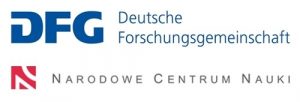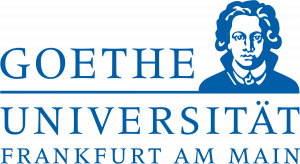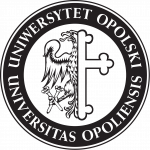
Zorganizowane grupy interesów jako „brakujące ogniwo” w kreowaniu polityk w wybranych krajach postkomunistycznych
Das fehlende Bindeglied: Organisierte Interessen in postkommunistischen Politikgestaltungsprozessen
The “Missing Link”: Examining organized interests in post-communist policy-making
(Projekt DFG-NCN / Beethoven, nr decyzji 2016/23/G/HS5/01001), kierowany przez dra hab. prof. Rafała Riedla, oraz – w części prowadzonej przez partnera niemieckiego – prof. Michaela Dobbinsa z School of Social Sciences / Goethe University Frankfurt am Main.
- Opis projektu PL
- Zespół / Team
- Projektbeschreibung DE
- Project description ENG
- Konkurs na stanowisko doktoranta / Scholarship position
„Zorganizowane grupy interesów jako „brakujące ogniwo” w kreowaniu polityk w wybranych krajach postkomunistycznych”
Celem zaproponowanego projektu jest analiza struktur, partycypacji i wpływu zorganizowanych grup interesów w kreowaniu wybranych polityk publicznych w Europie Środkowej i Wschodniej (EŚiW). Analiza obejmie trzy obszary polityczne: energię, służbę zdrowia i szkolnictwo wyższe w czterech krajach regionu: Polsce, Węgrzech, Republice Czeskiej oraz Słowenii. W pierwszym kroku skonstruowana zostanie baza danych identyfikująca zorganizowane grupy interesu, swego rodzaju mapa „ekosystemu” zorganizowanych grup interesu dla każdej z ww. polityk publicznych. Następnie autorzy projektu badawczego poszukiwać będą odpowiedzi na pytanie jak zorganizowane grupy interesów wpływają na społeczeństwo obywatelskie oraz jak pod ich wpływem dokonuje się proces agregacji preferencji politycznych (model pluralistyczny vs. korporatystyczny). Główna część analizy skupi się na ustaleniu wpływu jaki zorganizowane grupy interesów wywierają na poszczególne polityki. W tym kontekście zweryfikowane zostaną hipotezy badawcze zbudowane na bazie czynników, które potencjalnie warunkują skuteczność zorganizowanych grup interesów w krajach postkomunistycznych. Do czynników tych należą zarówno determinanty społeczno-ekonomiczne, jak i te wynikające ze specyfiki danej polityki, czy charakterystycznego dla niej „ekosystemu” zorganizowanych grup interesów. Aby zbadać siłę i zakres tych uwarunkowań autorzy projektu posłużą się metodą diagnozującą skalę realizacji preferencji. Pozwala ona na ustalenie dystansu pomiędzy daną inicjatywą rządową a preferencjami zorganizowanych grup interesów, pomiędzy pierwotną formą inicjatywy legislacyjnej, a jej ostatecznie uchwalonym kształtem. Równolegle, analizie poddany zostanie wpływ presji europeizacyjnej (moment akcesji, jak również europeizacja pre- i post-akcesyjna) na strukturę, środki i metody działania oraz samą skuteczność zorganizowanych grup interesów w EŚiW. Autorzy zmierzą się z pytaniami o stopień konsolidacji i profesjonalizacji zorganizowanych grup interesów wywołany procesami europeizacji, czy spowodowała ona przemieszczenie się aktywności zorganizowanych grup interesów do Brukseli i jaki wpływ ma ona na krajową „ekologię” zorganizowanych grup interesów. Odpowiadając na powyższe pytania autorzy zaaplikują komparatywną analizę studiów przypadków posługując się, uznaną w podobnych badaniach, jakościową metodą śledzenia procesu i identyfikacji mechanizmów przyczynowych (process tracing).
Zaproponowany projekt badawczy odpowiada na deficyt zidentyfikowany w literaturze przedmiotu w obszarze porównawczych studiów nad zorganizowanymi grupami interesów na obszarze postkomunistycznym. Dotychczasowe ujęcia analityczne koncentrowały się na wymiarze instytucjonalnym, np. stopniu konsolidacji systemów partyjnych. Tymczasem zaproponowane badania pozwolą na nowe ustalenia w zakresie mechanizmów formułowania się preferencji politycznych (i ich implementacji), miejsca, roli i znaczenia zorganizowanych grup interesów, w kontekście procesów transformacyjnych i europeizacyjnych. Dodatkowo podjęta analiza pozwoli zgłębić dotychczasową wiedzę na temat ewolucji społeczeństwa obywatelskiego i jego roli w funkcjonowaniu demokracji w EŚiW. W konsekwencji wnioski wynikłe z analizy przyczynią się do lepszego zrozumienia sposobów w jaki społeczne potrzeby i preferencje przekładają się na decyzje polityczne i jak różnego rodzaju organizacje społeczne kształtują jedne ze strategicznie najważniejszych obszarów politycznych, takich jak: energetyka, służba zdrowia i szkolnictwo wyższe.
Polsko-niemiecka współpraca badawcza, poza oczywistą wartością dodaną wynikającą ze zróżnicowanych punktów widzenia, zróżnicowanych kompetencji językowych i eksperckich, pozwala na osiągnięcie efektu synergii czerpiącego z dwóch bliskich, ale jednak odmiennych tradycji naukowych. Kumulacja wiedzy eksperckiej i naukowej osiągnięta zostanie nie tylko w bilateralnej relacji Polska-Niemcy, ale szerzej – dzięki komparatywnej naturze zaproponowanych badań – w konstelacji multilateralnej obejmującej znaczną część europejskiego obszaru naukowego. Oprócz korzyści wspólnych, realizacja projektu pozwala również niemieckiej politologii na zaawansowanie stanu badań nad EŚiW oraz aplikację w polskich (i środkowoeuropejskich) naukach społecznych metod i technik stosowanych z sukcesem w zachodniej nauce. Wzajemny transfer wiedzy i doświadczeń pozwala na osiągnięcie korzyści w postaci wartości dodanej w obu systemach akademickich. Wreszcie, oparcie znacznej części badań na młodych adeptach nauki (doktoranci) pozwala im na zaangażowanie się w bilateralną i multilateralną współpracę badawczą od najwcześniejszych etapów ich kariery naukowej, a w konsekwencji na socjalizację i rozwój w heterogenicznej kulturze akademickiej.
 prof. Rafał Riedel
prof. Rafał Riedel
Rafał Riedel is a professor at Opole University. PhD holder in Political Science, Jean Monnet Professor (in EU Studies), graduated at the Silesian University and Economic University in Katowice; habilitation obtained at Wrocław (Breslau) University.
Previously engaged in educational and research programmes, as a scholar, co-organiser or fellow, at European University Institute, ETH Zurich, Oslo University, Open Society Institute, Deutscher Akademischer Austauschdienst, Marie Curie Fellowship Programme, Max Planck Institute, TU Chemnitz, European Values Network, Fundacji Rozwoju Systemu Edukacji – EEA / Norway Grants. Scientific interests: European integration process, institutions and policies, Europeanisation, energy security in Europe, democratic deficit, transitology, considology and other problematic in the field of political science, media and communication studies.
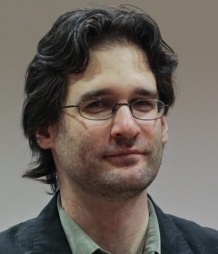 Geza Tokar
Geza Tokar
Géza Tokár (1984) is a second-year PhD student at the Eötvös Loránd University, Budapest, Hungary. He received a master’s degree in political science in the Comenius University, Bratislava, Slovakia in 2007. Later worked as a journalist a researcher in Fórum Institute, Šamorín, Slovakia, and as a coordinator of the Roundtable of Hungarians in Slovakia, which contains ethnical Hungarian non-governmental organizations in the country. His main fields of interests are ethnical minority-related issues, interest groups and lobbying strategies applied by non-governmental organizations. He is fluent in Hungarian, English and Slovak language.
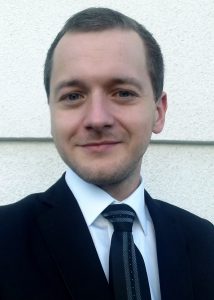 Szczepan Czarnecki
Szczepan Czarnecki
Szczepan Czarnecki currently studying at Maria Curie Sklodowska University in Poland for a PhD in Political Science and Human Rights. He graduated from Maria Curie Sklodowska University in Sociology, Slavic Philology and Balkan Studies. During his studies Szczepan Czarnecki did a study abroad exchanges in Bulgaria at St. Cyril and St. Methodius University of Veliko Turnovo, Charles University in Prague and Voronezh State University in Russia. Szczepan Czarnecki was member of multicultural organization AIESEC in Poland. He was also working as a trainee for Economia a.s. in Prague which is the third biggest publisher in Czech Republic, also he had possibility to work for biggest polish Web portal that focuses on the Balkan region: balkanistyka.org. In 2013 he completed his internship at BORAM Agency in Sarajevo in Bosnia and Herzegovina where he participated “EU at your door” project. “EU at your door was an initiative in cooperation with 15 municipalities across Bosnia and Herzegovina with the aim of helping citizens to learn more about this country’s EU perspective.”. As a person focused on Human Rights issues Szczepan is a member of Amnesty International in Poland, as well as he was coordinator of Amnesty International group in Lublin. In September/October 2016 Szczepan Czarnecki was an intern at the Office of MEP Krzysztof Hetman in European Parliament, where he was responsible for monitoring of the policies of the European Union, writing articles, speeches and reports from relevant meetings, hearings and conferences. In 2017 Szczepan did full time internship at the Organization for Aid to Refugees /Centre for Democratic Education in Prague, Czech Republic. OPU’s main activities include providing free legal and social counseling to applicants for international protection in Czech Republic, organizing training programs and promoting social integration. Szczepan Czarnecki speaks advanced Polish, English, Czech, Bulgarian and intermediate Russian. Szczepan is very interested in CEE region, Human Rights, democratization and transformation processes.
Das fehlende Bindeglied: Organisierte Interessen in postkommunistischen Politikgestaltungsprozessen
Förderung: Deutsche Forschungsgemeinschaft (DFG) und Narodowe Centrum Nauki (NCN)
Förderzeitraum: 3 Jahre
Projektleiter: Prof. Dr. Michael Dobbins & Prof. Dr. Hab. Rafał Riedel
http://www.fb03.uni-frankfurt.de/45894281/Projekte
In den letzten Jahren leistete die Politikwissenschaft einen entscheidenden Beitrag zur komparativen Analyse organisierter Interessen im politischen Prozess. Bisher wurden die postkommunistischen Länder jedoch weitgehend vernachlässigt. Stattdessen richtete die politikwissenschaftliche Osteuropa-Forschung den Blick hauptsächlich auf die Entwicklung formaler politischer Institutionen sowie auf Parteiensysteme und die Europäisierung von öffentlichen Verwaltungen in der Region. Mit diesem Forschungsvorhaben möchten wir einen Beitrag zur Überwindung dieses Forschungsdesiderates leisten, indem wir die Strukturen, die demokratisch-partizipative Einbindung sowie den Einfluss von organisierten Interessen auf den Politikgestaltungsprozess in vier postkommunistischen Staaten (Polen, Tschechien, Slowenien und Ungarn) untersuchen. Erstens soll durch die Erstellung eines Datensatzes zur Interessengruppenökologie eine allgemeine Bestandsaufnahme der Interessengruppen und der jeweils gegebenen Konfliktlinien in drei Politikbereichen – Gesundheitspolitik, Energiepolitik und Bildungspolitik – vorgenommen werden. Zweitens soll die Rolle von organisierten Interessengruppen in der Mobilisierung und Artikulierung zivilgesellschaftlicher Interessen herausgearbeitet werden. Der Hauptteil der Analyse befasst sich mit dem Einfluss organisierter Interessen auf Politik-Outputs. Vor diesem Hintergrund werden interessengruppenspezifische, konfliktthemenspezifische sowie sozioökonomische Faktoren analysiert, welche den Einfluss organisierter Interessen auf postkommunistische Politikgestaltungsprozesse konditionieren. Parallel dazu möchten wir die Auswirkungen der europäischen Integration und des EU-Beitritts auf die Strukturen, die demokratisch-partizipativen Gestaltungsmöglichkeiten sowie den politischen Einfluss von organisierten Interessen in Mittel- und Osteuropa analysiere. Konkret soll erforscht werden, ob die zunehmenden Verflechtungen zwischen mittel- und osteuropäischen Interessengruppen und deren westeuropäischen Pendants zu deren Konsolidierung und Professionalisierung auf nationaler Ebene geführt und infolgedessen deren Einfluss auf Politik-Outputs gestärkt hat. Darüber hinaus soll die Gegenhypothese analysiert werden, dass sich nationale Interessengruppen im Zuge der Europäisierung für den Rückzug aus der nationalen politischen Arena entscheiden, was letztendlich zur Stärkung der Durchsetzungskapazität des Staates oder bisher strukturell benachteiligter Interessengruppen führt.
The “Missing Link”: Examining organized interests in post-communist policy-making
The objective of the proposed project is to explore the structures, democratic-participative incorporation and impact of organized interests in Central and Eastern Europe. The applicants will analyze the interest group landscape in three policy areas – energy, healthcare and higher education – in four post-communist countries: Poland, Hungary, the Czech Republic and Slovenia. First the authors will develop a database of the “interest group ecology” in each policy area. The applicants then explore how interest groups organize civil society and contribute to the political preference aggregation process, while examining the structure of the interest group landscape (pluralist vs. corporatist). The main part of the analysis explores the clout that interest groups wield over policy outputs. Against this background, we derive a series of hypotheses based on interest group-related, issue-related, and socio-economic factors, which potentially condition the influence of organized interests in post-communist politics. To do so, we address the extent to which interest groups impact partisan preferences and then draw on the so-called “preference realization method”, according to which interest group preferences are measured against the initial government proposal, the official legislative bill and the final output. In parallel, we examine how European integration and EU accession have affected the structure, democratic-participative means, and impact of organized interests in CEE. Has European integration resulted in the consolidation and professionalization of domestic interest groups, ultimately strengthening their impact on policy output? Or has Europeanization prompted major interest groups to shift their activities to Brussels, thus increasing the clout of the state or previously structurally disadvantaged organized interests? To explore these questions, the applicants rely on comparative case studies based on the qualitative method of process tracing.
The project will tackle a scientific area that has been overlooked in both previous research on organized interests in comparison and on post-communist governance in generally, the latter of which has focussed primarily on formal political institutions (e.g. presidentialism vs. parliamentarism) and the consolidation of party systems. Specifically, the project will cover key new insights on the “nuts and bolts” of modern CEE governance in the context of the political and socio-economic transformation and Europeanization. Moreover, the analyses will provide crucial insights on the emergence and evolution of civil society, which can be seen as a crucial prerequisite for functioning democracies. Thus, the project will contribute to our understanding of how societal demands are channelled into the political process and how societal organizations shape three of the most important policy areas for the long-term prosperity of nations – energy, health care and higher education. Besides the linguistic benefits of Polish-German cooperation, the bilateral nature of the project provides the German and Polish sides important channels for accessing new knowledge and expertise originating from different scientific traditions and backgrounds. Beyond German-Polish synergies, the comparative nature of the project enables us to tap into and reinforce cooperation within the pan-European research area. The project also provides an opportunity to enhance research on Central and Eastern Europe in German political science, while also facilitating the transfer of western methodological and analytical approaches to the Polish and Central and Eastern European context. Finally, the strong reliance on PhD candidates for the empirical case studies enables young researchers to engage in bilateral and international cooperation at an early stage in their career and familiarize themselves with heterogeneous academic cultures.

